Â鶹´«Ă˝ Explains: What escalating India-Pakistan tensions mean for the rest of the world
Are the nuclear-armed neighbours on the cusp of a full-fledged war?
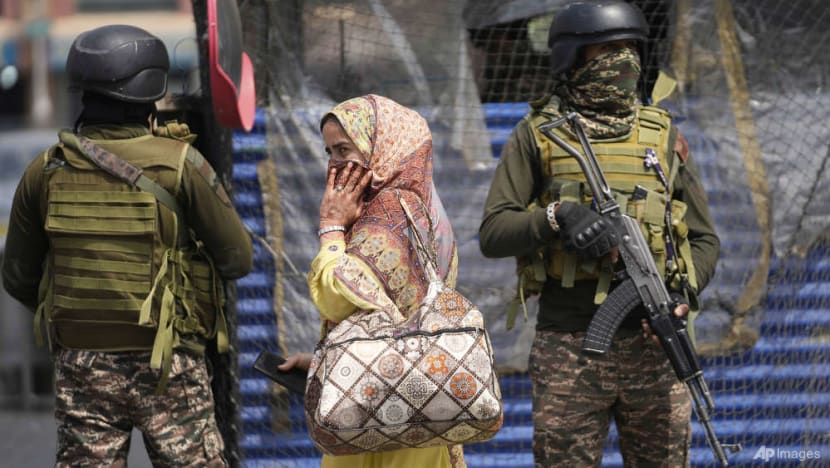
Indian soldiers stand guard as a woman walks in a market in Srinagar, Indian-controlled Kashmir, Wednesday, May 7, 2025. (Photo: AP/Mukhtar Khan)

This audio is generated by an AI tool.
SINGAPORE: India on Wednesday (May 7) launched missile strikes at nine sites in Pakistan and Pakistan-administered Kashmir. At least 38 fatalities have been reported.
Tensions between the two nuclear-armed neighbours have been escalating since an attack on tourists in India-administered Pahalgam in Kashmir last month, which left 26 dead.
India's defence ministry said Wednesday's operation showed the country's resolve to hold perpetrators accountable while avoiding unnecessary provocation.Â
In response, Pakistan's defence minister said the retaliation had "already started" and vowed to "settle the score".
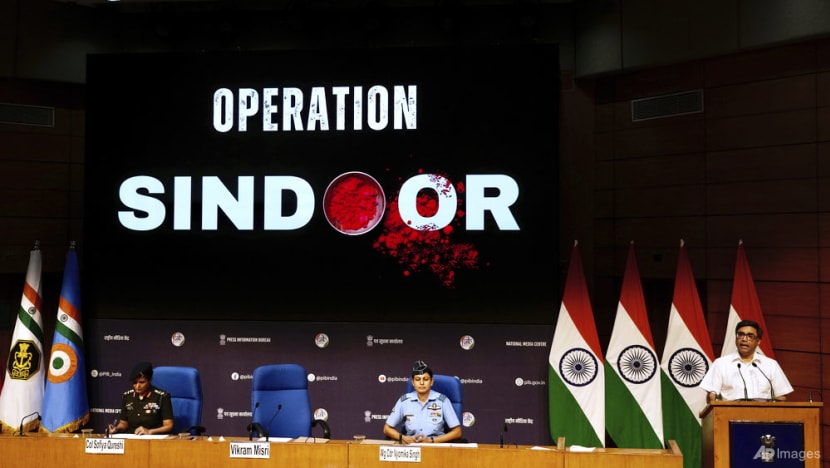
What's the history between India and Pakistan?
Since gaining independence from the British in 1947, Hindu-majority India and Muslim-majority Pakistan have fought over the Kashmir region, with both sides claiming it in full.Â
Their first war was in 1947 and a second happened in 1965. At least three other wars and several armed skirmishes have erupted in the decades since.
The India- and Pakistan-administered parts of Kashmir are currently split by a Line of Control, which serves as a de facto border.
India governs the Kashmir Valley, Jammu and Ladakh, while Pakistan controls Azad Kashmir, Gilgit and Baltistan.
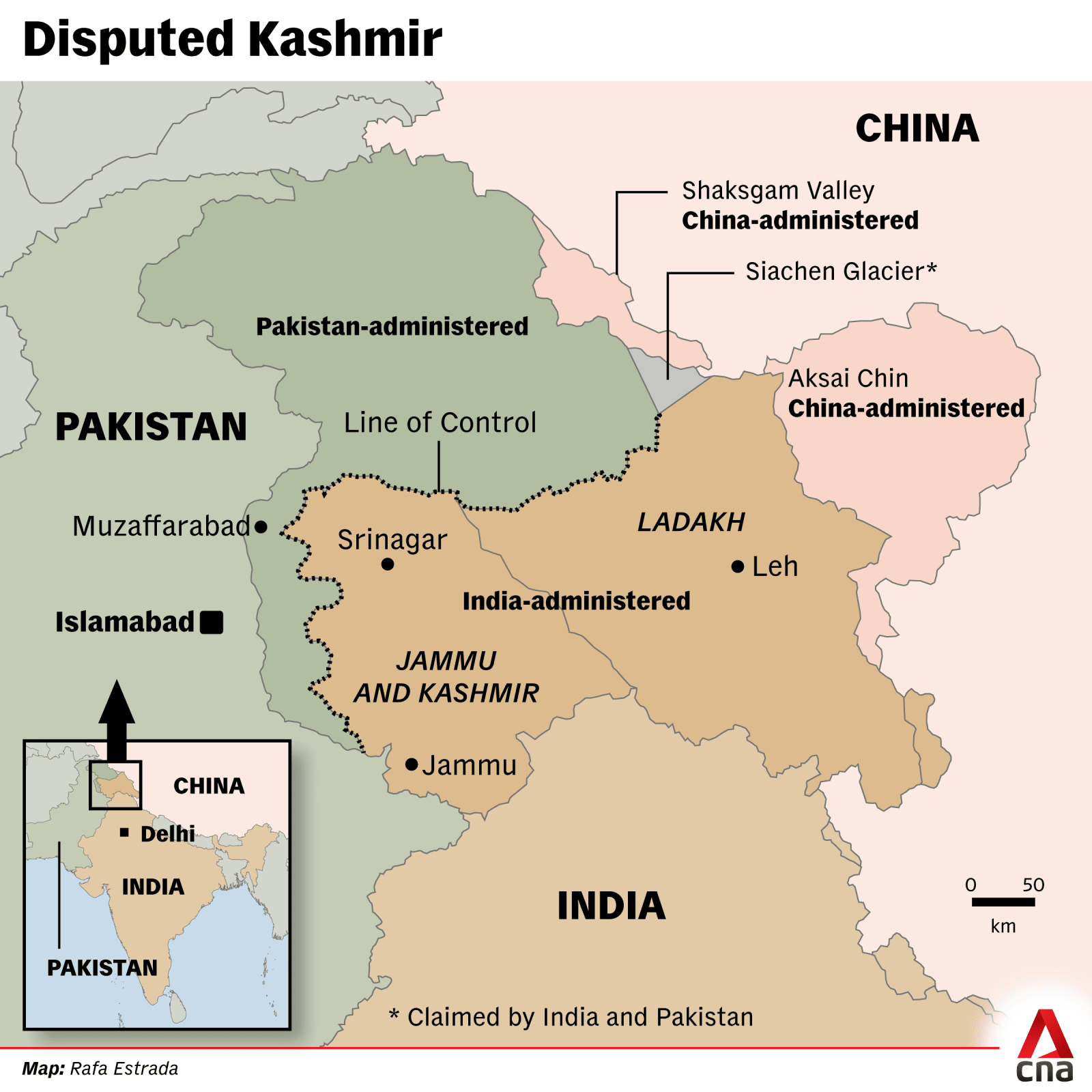
Are they on the brink of another war?Â
Since last month's attacks, the two nations have already traded diplomatic blows: India suspended the Indus Water Treaty - a decades-old agreement to divide the water in the Indus river - and closed its mainland border crossing with Pakistan.
Pakistan, meanwhile, has threatened to pull out from the Simla Agreement, a peace treaty signed in 1972 which established the Line of Control and is aimed at normalising ties.Â
The neighbours have also cancelled visas for each other's citizens and closed off access to airspace.
With the latest escalation, expert opinion is split on the prospect of South Asia's longest-running conflict spiraling into another all-out war.
Writing in The Conversation, international relations professor Ian Hall from Australia's Griffith University said it was clear both sides are closer to a major conflict than they've been in years.
"The hope would be there’s limited military action, lasting a few days, and then things calm down rapidly, as they have in the past. But there are no guarantees," he said.
Associate Professor Iqbal Singh Sevea from the National University of Singapore (NUS)Â said there were no signs of an impending war - yet.
Both countries are wary of being pulled into full-scale hostilities, he said, noting that India had consciously framed its strikes as "focused, measured and non-escalatory" actions solely targeting "terrorist infrastructure".
"This reflects its aims of framing the strikes as attacks on terrorists based in Pakistan, and not an act of war."
On its part, Pakistan is anxious about a military escalation. It will still likely respond to India's strikes with military action - but calibrated in a manner that does not escalate tensions beyond a point, added Assoc Prof Sevea, who is the director of the university's Institute of South Asian Studies (ISAS).Â
How has the global community reacted?Â
Leaders across the world have expressed concern.
United Nations Secretary-General Antonio Guterres said the world "cannot afford" a military confrontation between the two countries. United States President Donald Trump called the crisis a "shame".
In Asia, the Chinese foreign ministry said in a statement that India's operation was "regrettable", and called on both countries to refrain from taking actions that might further complicate the situation.Â
Japan's chief cabinet secretary was concerned about the potential escalation into a full-scale military conflict, and similarly urged the two nations to "exercise restraint" and stabilise the situation through dialogue.Â
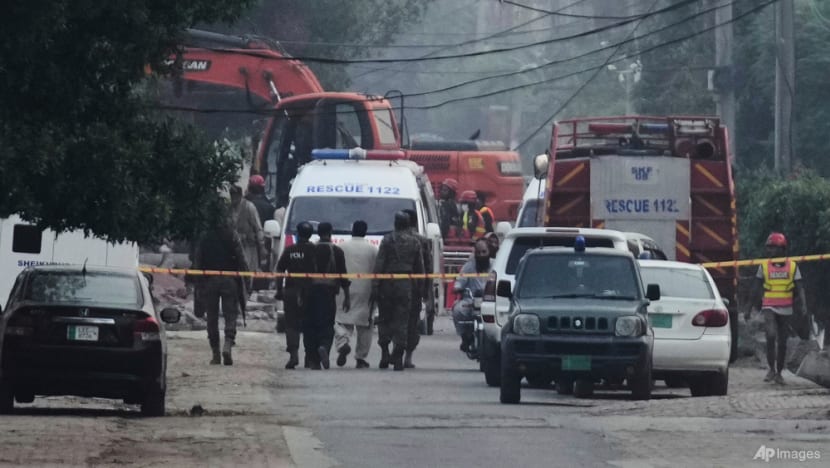
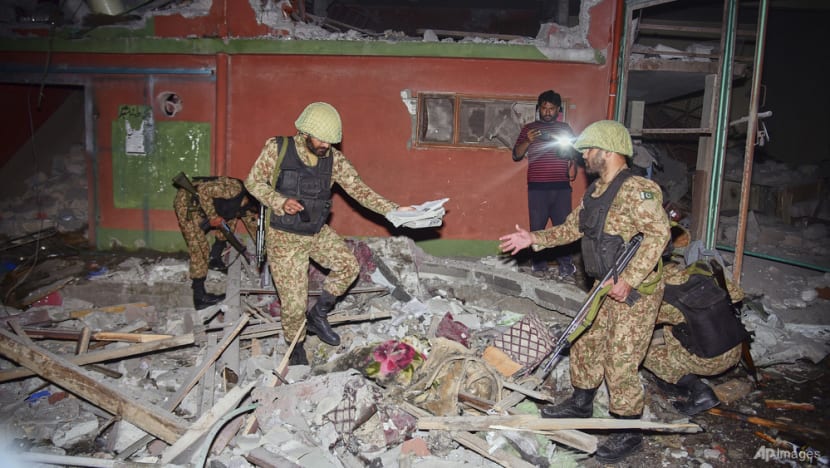
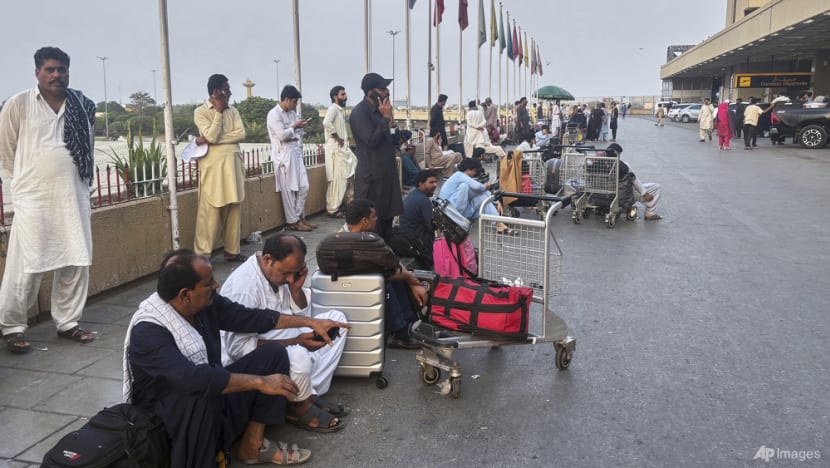
What's the impact on Southeast Asia?Â
One immediate implication of extended hostilities would be import: India's economy is increasingly linked with Southeast Asia, with many states in the region investing in New Delhi, said Assoc Prof Sevea.
Several Southeast Asian countries are also reliant on food imports from India and Pakistan, including staples such as rice.
Malaysia imports about 40 per cent of its rice from the two nations, while Indonesia relies on imports from India to meet its shortfall in rice production.
For countries like Singapore which support multilateral institutions and frameworks, conflict between India and Pakistan will only introduce even more uncertainty to a global order already in flux, Assoc Prof Sevea noted.
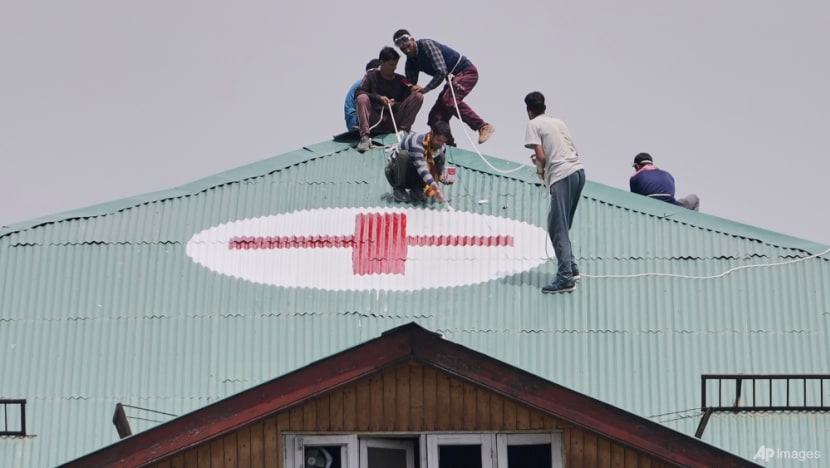
Is there a path to de-escalation and long-term peace?
Researcher Iftekharul Basha from the S Rajaratnam School of International Studies think-tank wrote in a commentary after the April attack in Pahalgam that India needs to take steps to ensure social cohesion and co-existence; and respect diversity.
"Alienating Indian Muslims will only pave the way for extremists to exploit the situation," he said.
Pakistan, too, has a responsibility to take credible measures to ensure regional peace and security by thoroughly investigating and clamping down on terrorist groups operating within its borders, Mr Basha added.Â
He also cited the South Asian Association for Regional Cooperation (SAARC) - an economic and political organisation of countries in the region - and how treaties under it such as the Suppression of Terrorism Convention have been "underutilised" due to a lack of enforcement and political will.Â
The association could have stepped in to reduce tensions following the April attack, but political rivalry had hindered its effectiveness.Â
Mr Basha said the SAARC could consider learning from other regions like Southeast Asia and its ASEAN bloc.
Gestures from the wider international community, meanwhile, may only offer temporary relief, said former Pakistan national security adviser Moeed W Yusuf in an analysis for the Belfer Center for Science and International Affairs in Harvard University.
The international community’s interest has been restricted to crisis management rather than crisis prevention, which requires more sustained effort to nudge both sides to normalise their ties, he wrote.Â
Mr Yusuf said dialogue between the two nations was the "only sensible way forward", citing examples of previous instances when India and Pakistan had made progress in their relationship after serious conversations.Â
"The international community should find ways to facilitate India and Pakistan’s return to the negotiation table – with the intent to address all their outstanding issues in a mutually acceptable and sustainable manner," he said.
"The risks of heightened tensions in nuclear South Asia are too high for the world to allow this to happen."












